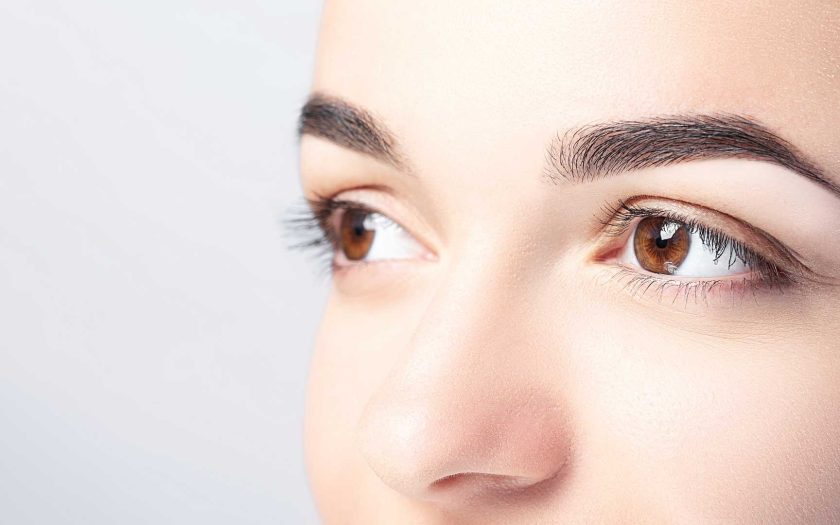Stress.
In today’s fast-paced life, stress has become almost an inseparable part of every person’s routine. Work problems, uncertainty, conflicts and emotional exhaustion- all contribute to tension that your body doesn’t always handle without consequences. One of the manifestations of such overload is an eye twitch. When you are stressed, your nervous system operates at an increased activity level. The brain sends impulses to different parts of the body, which can cause involuntary muscle contractions, including around the eyes. Initially, the twitch may be barely noticeable and only occur in the most stressful moments. However, if stress becomes chronic, this unpleasant symptom may appear more frequently, causing discomfort and increasing anxiety. Therefore, to prevent this from happening, you need to give yourself rest and from time to time perform relaxation techniques, which will help reduce tension and prevent the appearance of unpleasant symptoms. Moreover, if you feel that stress has become chronic, and you are experiencing increased anxiety and other unpleasant symptoms, it is advisable to consult a doctor. A specialist will prescribe the necessary treatment (such as Stablon, Feliz S, Xet), which will help reduce anxiety and stabilize your emotional state.
Dry eyes.
When the eyes don’t receive enough moisture, they begin to feel discomfort, burning, and irritation. As a result, a person blinks more frequently or excessively strains the muscles around the eyes, which can ultimately trigger an eye twitch. Dry eyes can occur for various reasons, such as using air conditioners or heaters, insufficient water intake throughout the day, wearing contact lenses, and age-related changes. Additionally, inadequate tear production may be linked to stress or chronic fatigue, further exacerbating the problem. To prevent this, it’s important to take breaks from screen time, use special moisturising eye drops (such as Cyclomune Eye Drops), maintain optimal humidity levels in the room, and drink plenty of water. Proper eye care helps prevent unnecessary strain and the occurrence of unpleasant sensations.
Alcohol or nicotine abuse.
Alcohol and nicotine have a powerful impact on the nervous system, and although they may initially create the illusion of relaxation, in reality, they only deplete the body. For example, excessive alcohol consumption disrupts the balance of neurotransmitters in the brain, which can lead to involuntary muscle contractions, including eye twitches. On the other hand, nicotine stimulates the nervous system, increasing arousal and tension in the body. This can result in more frequent contractions of the small facial muscles, causing uncontrolled twitches. Additionally, both alcohol and nicotine contribute to dehydration, negatively affecting muscle function and nerve endings. If an eye twitch occurs regularly and is accompanied by other signs of fatigue, increased anxiety, or sleep problems, it may be time to reconsider your habits. Reducing or eliminating alcohol and nicotine consumption can help not only reduce the risk of involuntary twitches but also improve the overall health of the nervous system and your well-being.
Hypothermia.
When the body is exposed to low temperatures, it can trigger muscle spasms, including those around the eyes. Hypothermia is particularly common in the cold season, when a person spends a lot of time outdoors or in low-temperature environments. Wind, cold air, or insufficient heating in indoor spaces can contribute to the development of this unpleasant symptom. To prevent eye tics caused by hypothermia, it’s important to dress warmly, wear protective accessories such as hats and scarves, and avoid prolonged exposure to the cold. For example, if you are working outside in extreme cold, take breaks whenever possible and warm up indoors.
Overloading of the cervical spine.
Most people don’t realize that tension in the neck can affect the muscles of the face and eyes. However, the cervical spine is closely connected to the nervous system, which controls motor impulses throughout the body. For example, when a person stays in an incorrect posture for a long time, it puts excessive strain on the neck and shoulder muscles. As a result, this can lead to impaired blood circulation and irritation of nerve endings, triggering involuntary muscle contractions around the eyes. To prevent this issue, it is important to maintain good posture, stretch the neck regularly, avoid prolonged static positions, and perform exercises to strengthen the back muscles.

